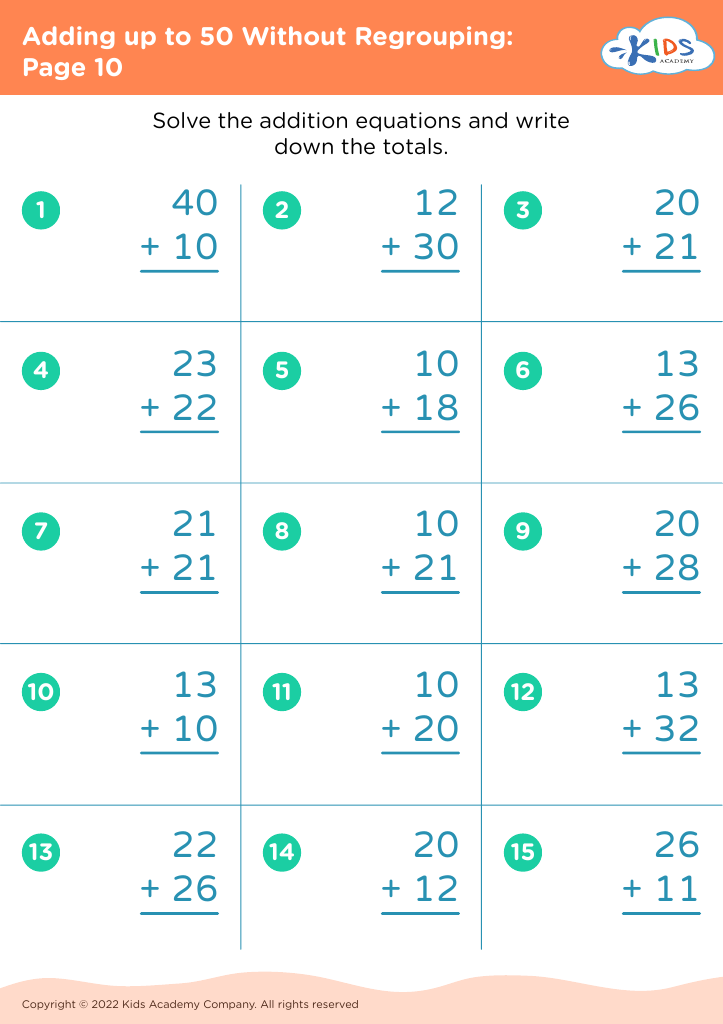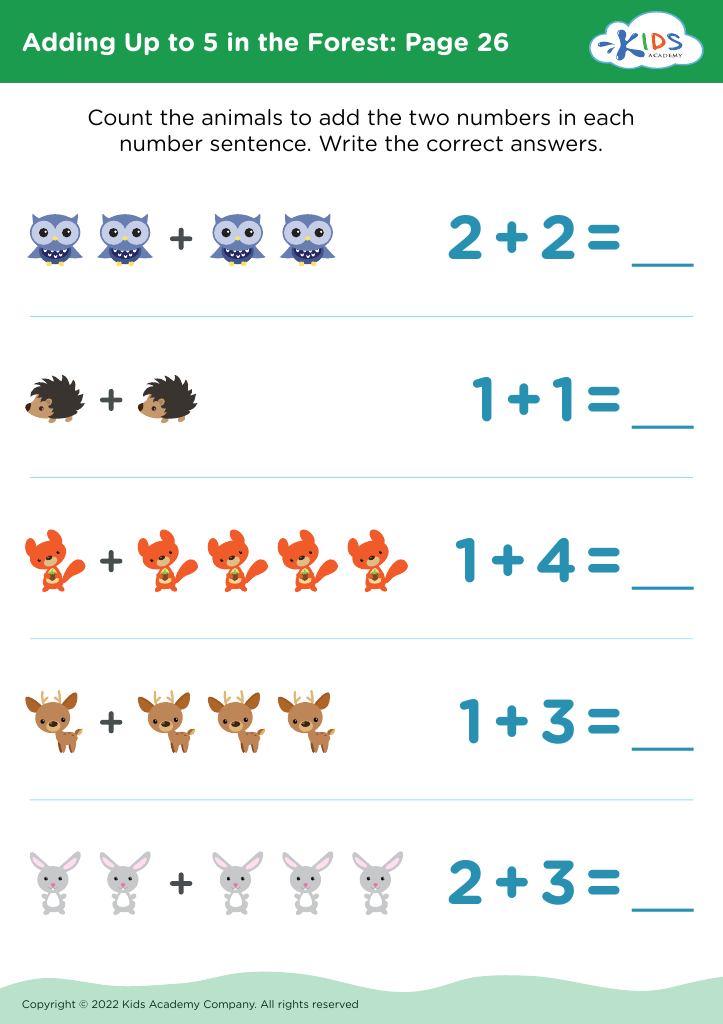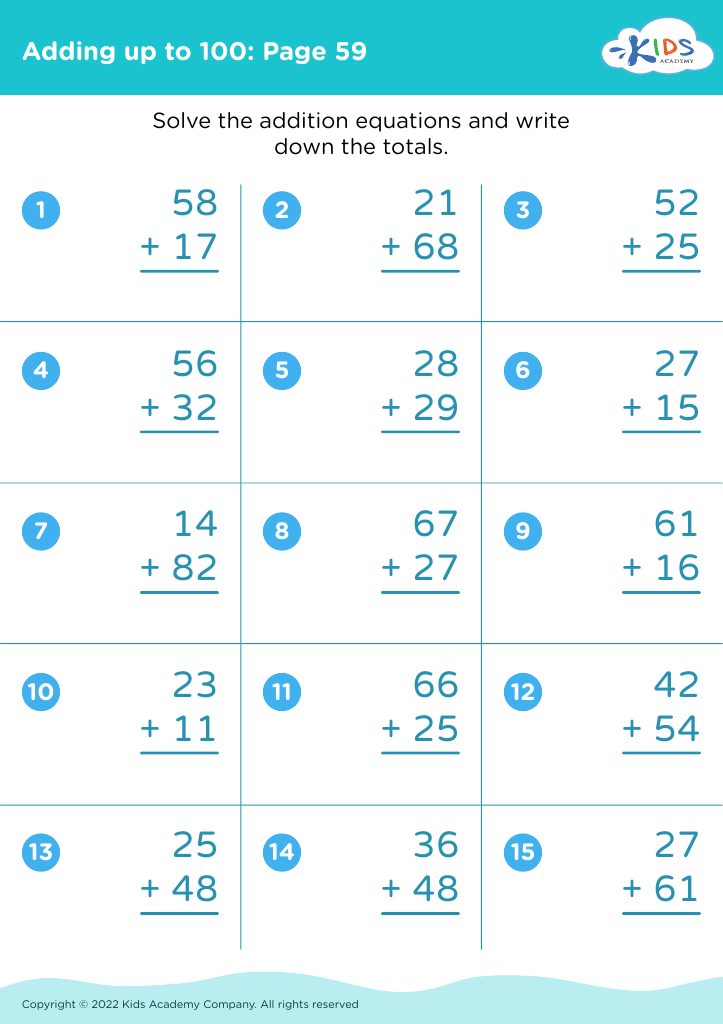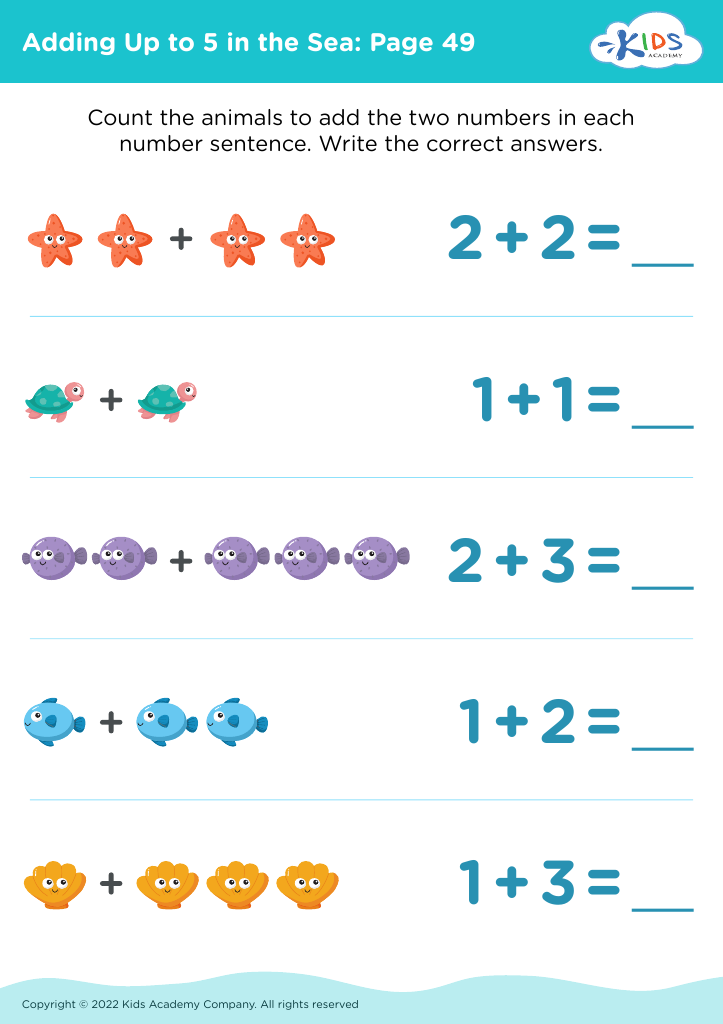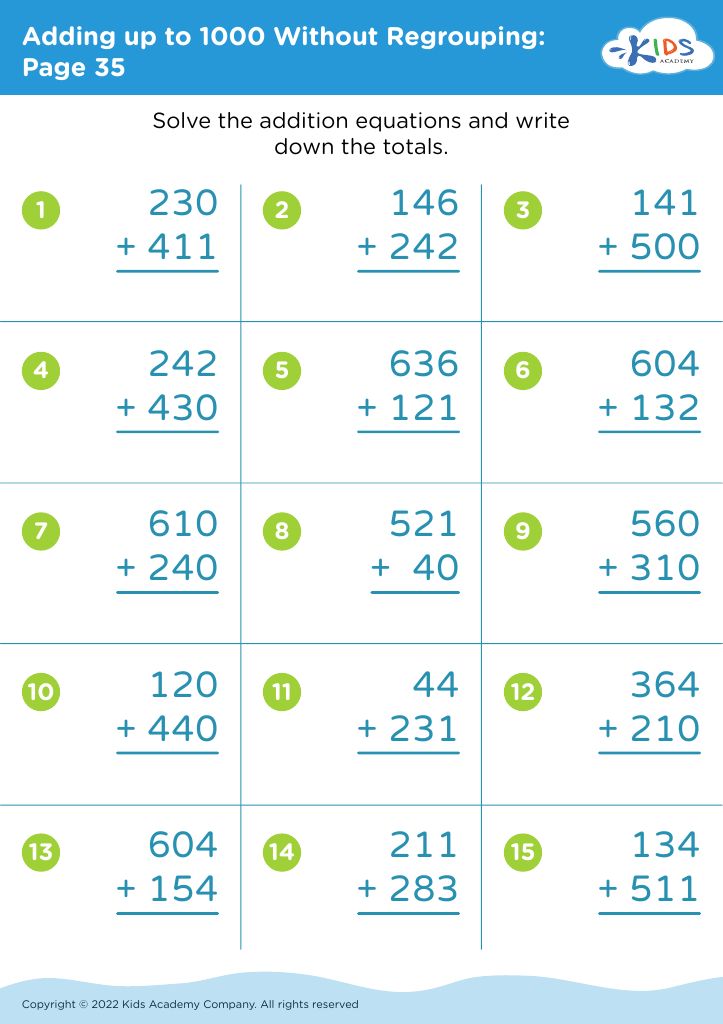Enhancing Counting Skills Addition & Subtraction Worksheets for Ages 5-7
15 filtered results
-
From - To
Enhancing Counting Skills: Addition & Subtraction Worksheets for Ages 5-7 offers a delightful approach to developing essential math abilities in young learners. Designed specifically for children aged 5 to 7, these worksheets provide a variety of engaging activities focused on counting, addition, and subtraction. Each worksheet promotes skill-building through fun exercises that reinforce number recognition and arithmetic concepts. Children will enjoy interactive tasks that make learning enjoyable, fostering a positive attitude toward math. Perfect for classroom or home use, these resources ensure foundational skills are mastered effectively. Help your child build confidence and proficiency in math today!
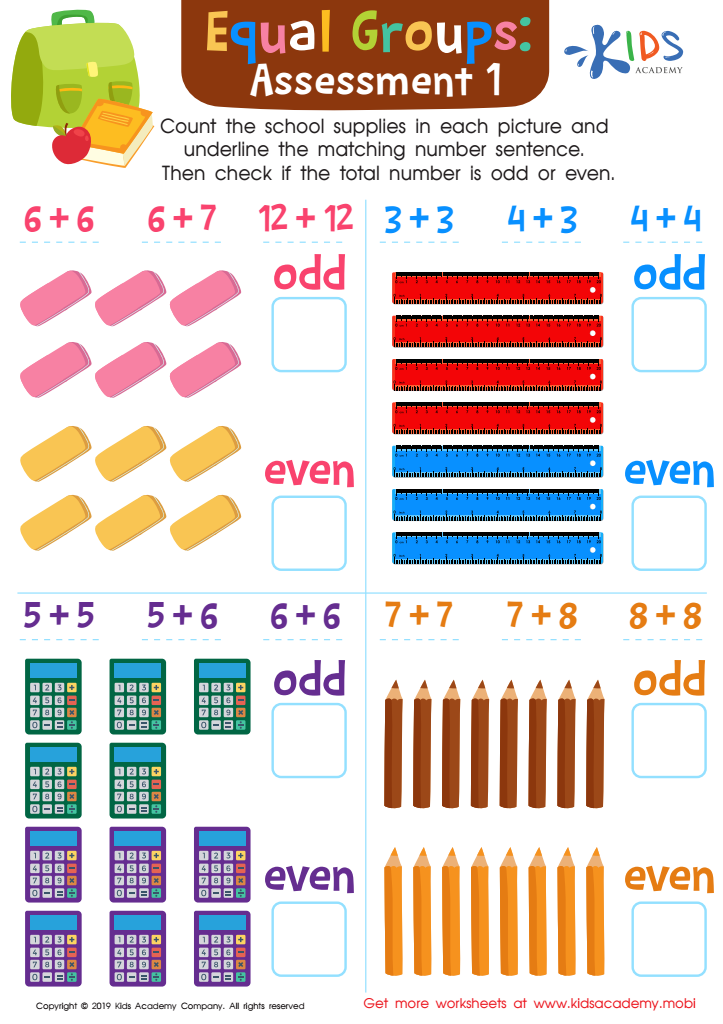

Equal Groups: Assessment 1 Worksheet
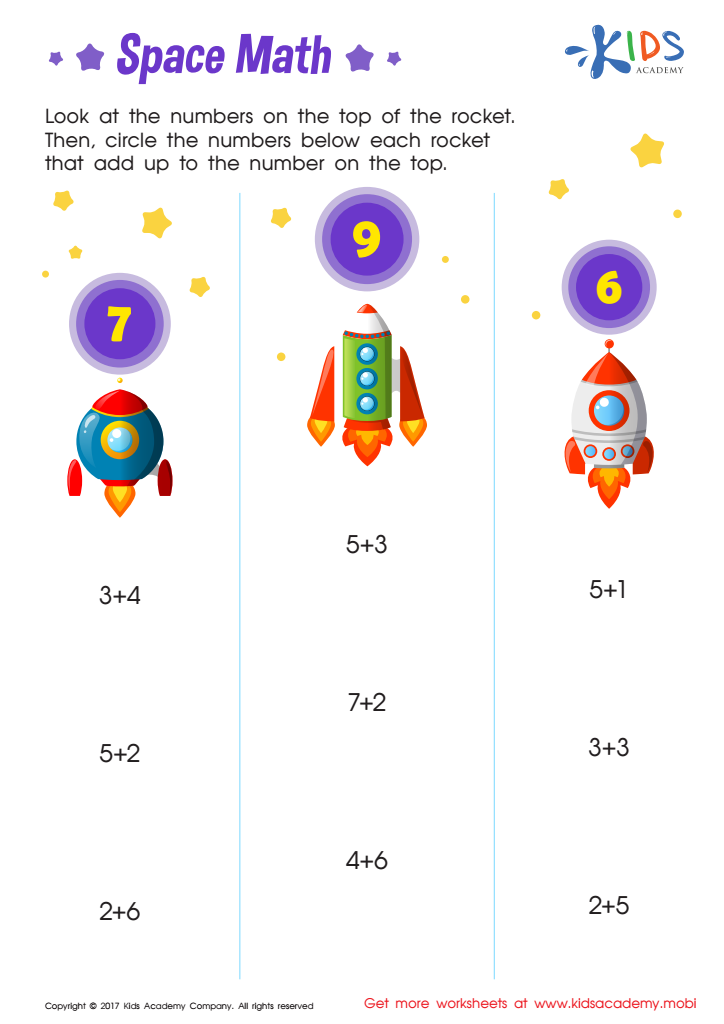

Addition: Space Math Worksheet
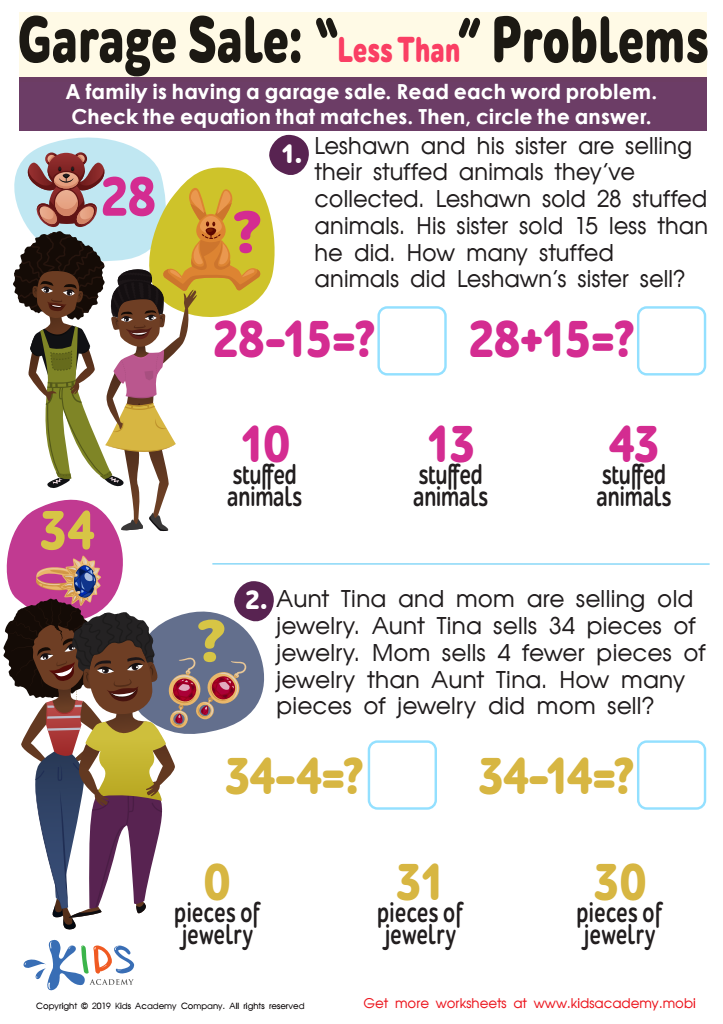

Garage Sale Less Than Worksheet
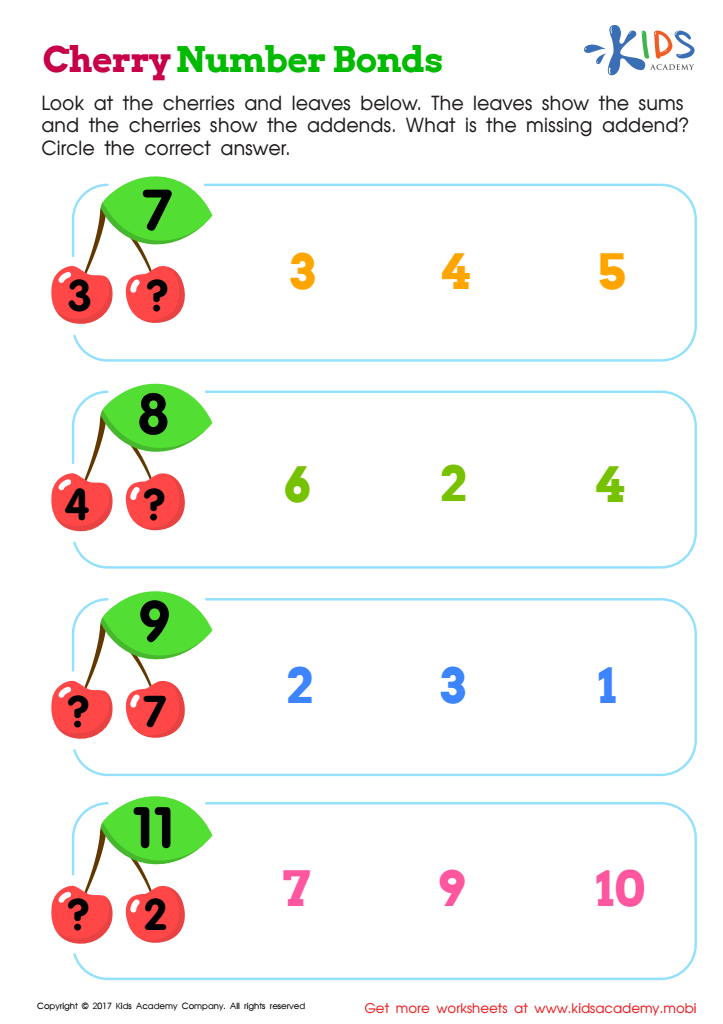

Cherry Number Bonds Worksheet
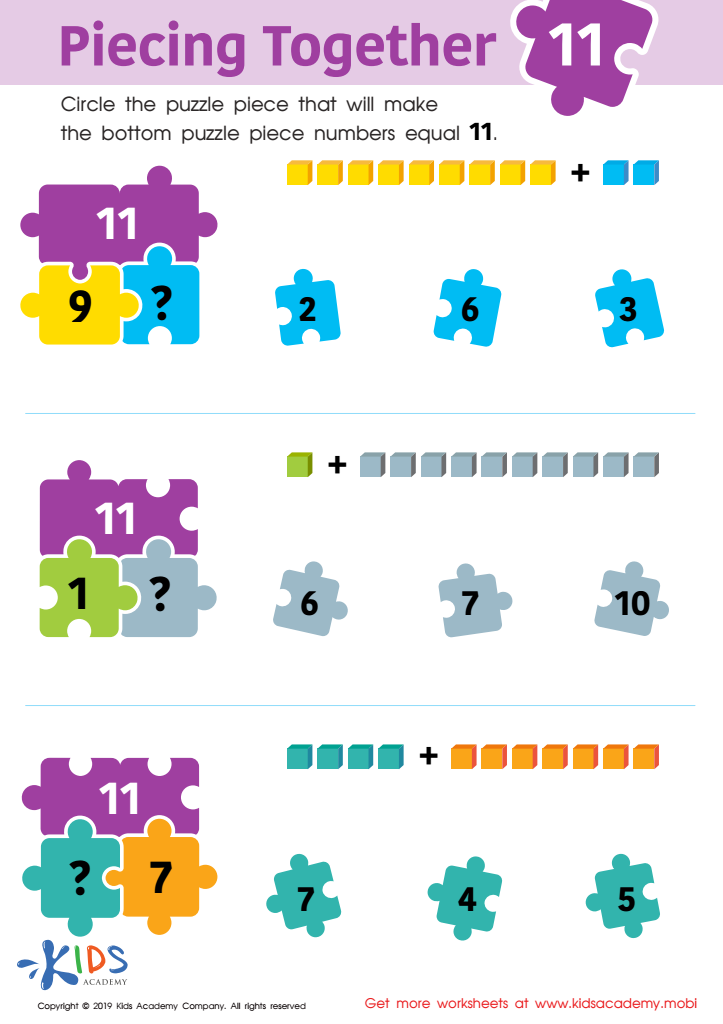

Piecing Together 11 Worksheet
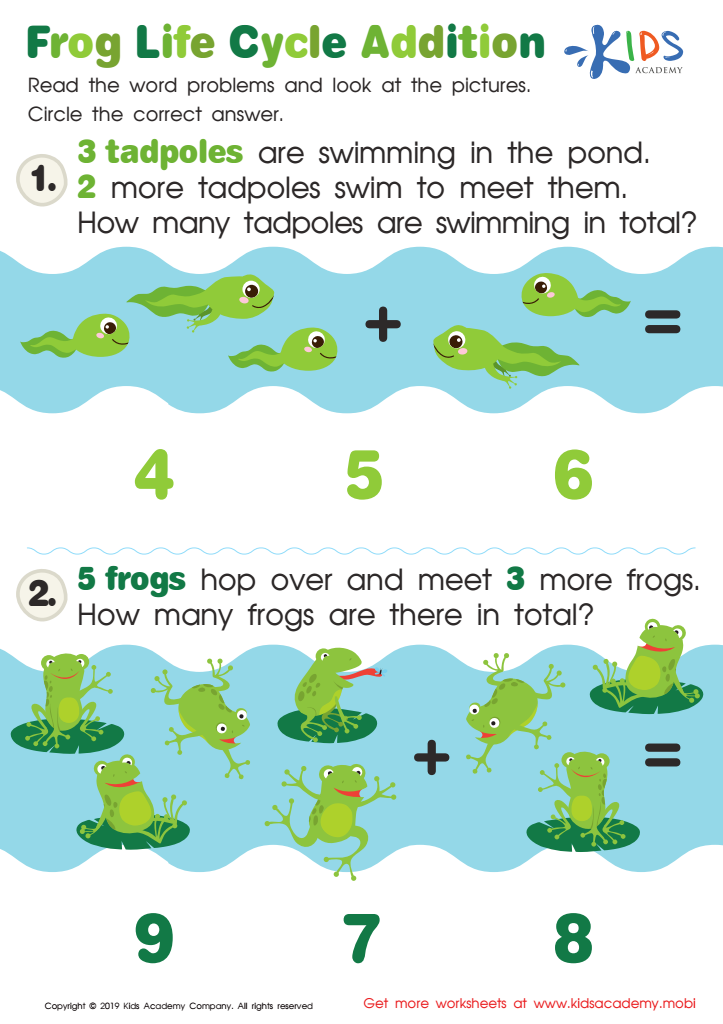

Frog Life Cycle Addition Worksheet
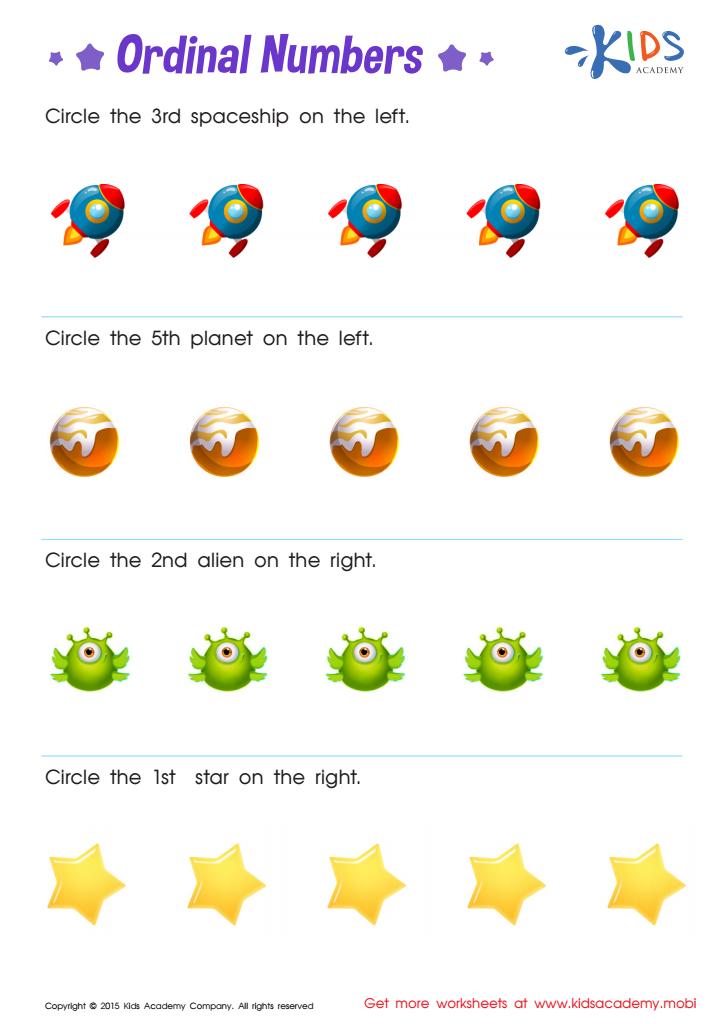

Ordinal Numbers: Space Ordinals Worksheet
Enhancing counting skills, along with addition and subtraction proficiency, is crucial for children aged 5 to 7, as these foundational abilities are essential for their mathematical understanding and overall cognitive development. During this formative stage, children develop their number sense, which shapes how they perceive and interact with numbers throughout their lives. Strong counting skills equip children with the ability to perform basic arithmetic, fostering confidence and preparing them for more complex mathematical concepts in later years.
Moreover, these skills are intertwined with various aspects of daily life, aiding children in making sense of their world, from understanding time and money to solving everyday problems. As educators and parents, prioritizing these skills can lead to improved academic performance, heightened enthusiasm for math, and the development of critical thinking abilities.
Additionally, engaging in counting, addition, and subtraction activities strengthens fine motor skills and encourages social interaction through collaborative games and exercises. The meaningful connections to real-life scenarios, such as shopping or cooking, make mathematics relatable and enjoyable. By nurturing these essential skills, we not only equip children for academic success but also provide them with tools to navigate their everyday environments confidently and competently.
 Assign to My Students
Assign to My Students

